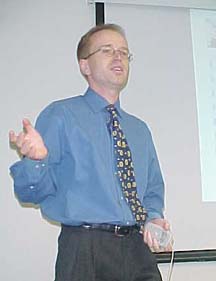Andreas Deppe, an Energy Systems Specialist with Hagler Baillee, Inc., defended his doctoral research on “Analysis and Simulation of a Residential Fuel Cell Cogeneration Market” on May 31, 2001.
Andreas’ research work was based on recognition that heat and electrical power of residential units currently are generated separately (power is generated at large power stations at remote locations, with generated heat considered to be an unavoidable by product). Rapidly evolving technologies in the area of fuel cell cogeneration systems offer the promise of reducing waste heat thus increasing fuel efficiency.
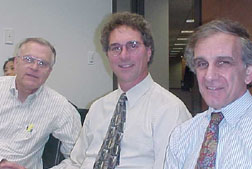
Since each of these systems would use 15% less carbon dioxide than gas furnaces using power purchased for the electric grid, the hypothesis, if true, could lead to a substantial contribution to society’s efforts to reduce greenhouse gases. Andreas used a combination of Monte Carlo simulation, a mathematical cognitive model and a design optimization model to test the hypothesis that an annual market of 50,000 fuel cell cogeneration units will exist in new England by the year 2010. Key variables in Andreas' model included net metering, interconnection requirements, and power and natural gas price trends.
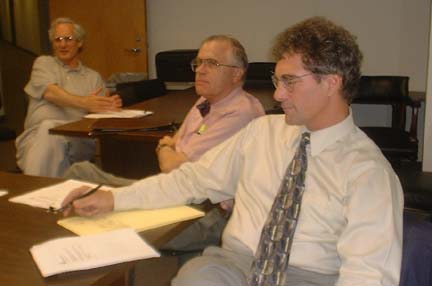
Andreas' work could help to open up a new market for fuel cell cogeneration units estimated to be as high as $3.5 billion annually in the United States alone. Not only would this create new economic opportunities, it also could help enable our society to conserve fossil fuel resources and help address the very important problem of global climate change.
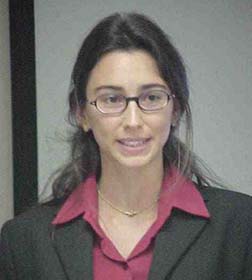
Virginia Alzina, Environmental Specialist at the Inter-American Development Bank (IDB), defended her doctoral research on “Environmental Impact Assessment Systems In Developing Countries: A Study of Success and Failure in Latin America and the Caribbean” on March 12, 2001.
In her research, Virginia developed a baseline for comparing EIA systems through a literature review of existing EIA systems in 26 Latin American and Caribbean countries, to compile the elements necessary for an effective EIA system in that region, and to conduct primary research involving a comparative analysis of data to be gathered with the involvement of 260 in-country EIA experts.
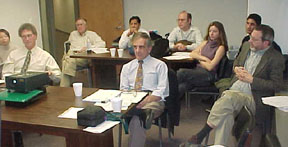
Virginia's cross-country analysis of the Latin America and the Caribbean Region (LAC) examined the institutional and procedural aspects of EIA practice, evaluated its impact on environmental quality and management, and assessed the requirements to strengthen institutional capacity in the public and private sectors. The results showed that a diversity of methodologies in the environmental analysis, and different systematic expressions of the process in the countries, have generated a series of individualized EIA systems adjusted to the realities of each country.
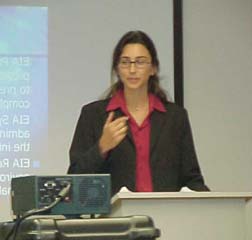
Growing regional integration makes it a priority to seek greater harmonization of the EIA systems, principles, and procedures on a regional basis. Virginia's study revealed that the institutional foundations of EIA, its laws, principles and administrative procedures are reasonably well established in most of the countries of the LAC Region, reflecting the fact that recent steps have been taken toward strengthening many national EIA systems.
However, she found that not all the EIA systems perform equally well, and certain shortcomings become more evident when they are seen in the overall context. She analyzed the main problems with the current systems and used her cross country analysis to draw policy recommendations to improve them in several areas, including building necessary preconditions, institutionalization and political will, citizen participation and administrative procedures.


